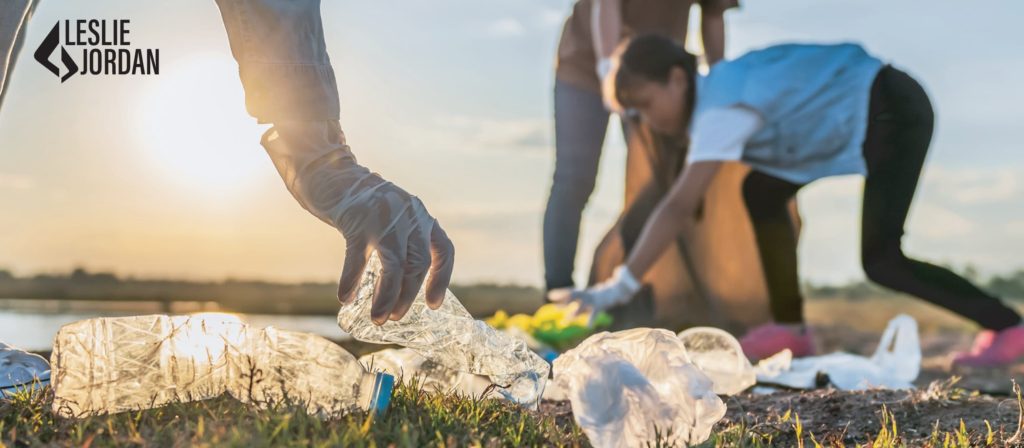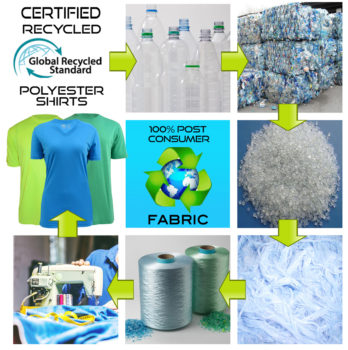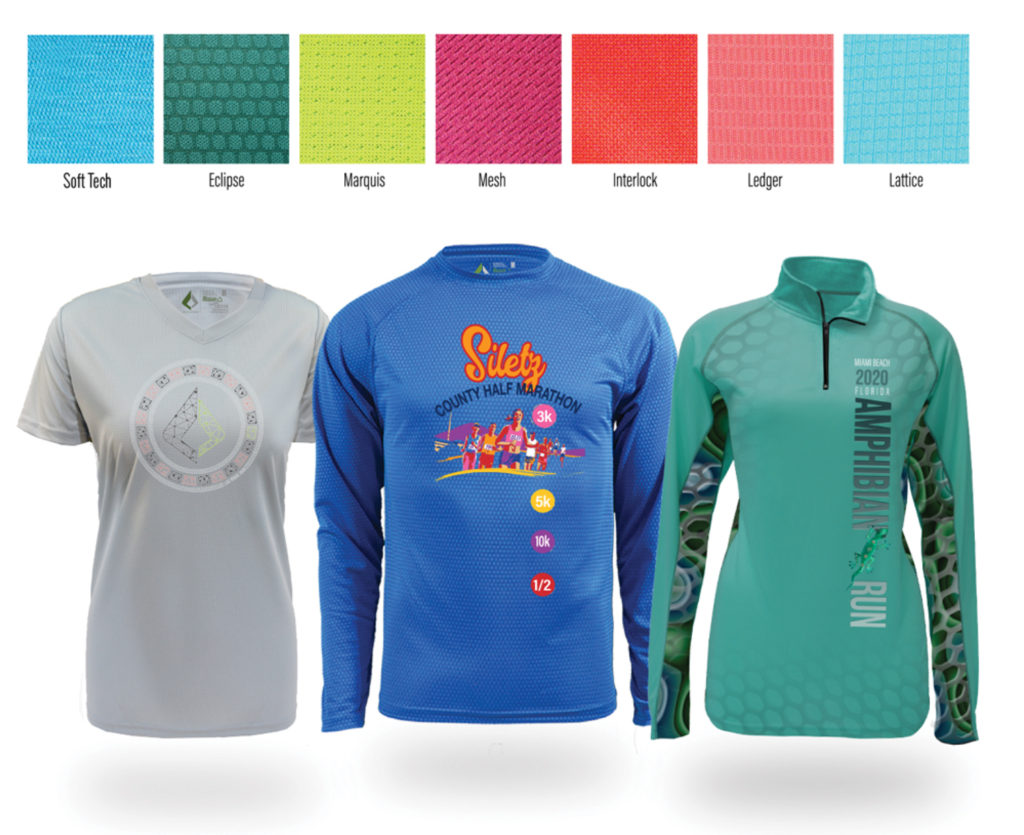Sustainable Strides: The Case for Switching to Recycled Fabrics in Running Races
Using recycled shirts in your next running event brings numerous benefits, aligning with global sustainability efforts and responsible event management. Recycled fabrics contribute to environmental conservation by reducing the demand for virgin resources, minimizing energy consumption, and decreasing waste in landfills, this eco-friendly choice also helps in lowering the event’s carbon footprint, conserving water resources, and promoting a circular economy.
Beyond the environmental impact, incorporating recycled shirts enhances participant engagement, fosters awareness about sustainable practices, and positions your event as a socially responsible leader. Here are more reasons why making this switch not only reflects a commitment to environmental stewardship but also adds a unique and positive dimension to the overall
Environmental Impact
One of the main benefits of switching to recycled fabrics is that it reduces the demand for virgin resources, mitigating the environmental impact associated with traditional textile production. Textile production is one of the most resource-intensive and polluting industries in the world, consuming large amounts of water, energy, land, and chemicals. According to the World Bank, the textile industry accounts for 20% of global industrial water pollution and 10% of global carbon emissions. Additionally, textile production generates a lot of waste, both in the manufacturing process and in the end-of-life disposal of products.

By adopting recycled fabrics for event apparel, running events can contribute to the conservation of natural resources, reduction in energy consumption, and minimization of waste. For example, according to the Global Recycle Standard, producing one kilogram of recycled polyester can save up to 60% of energy and 94% of water compared to producing one kilogram of virgin polyester. Moreover, by diverting waste from landfills, recycled fabrics can prevent the emission of methane, a potent greenhouse gas, and the leaching of toxic substances into the soil and water.
Recycled Fabrics Reduce Carbon Footprint
A third benefit of switching to recycled fabrics is that it generally results in lower carbon emissions compared to the manufacturing of new materials. Carbon emissions are one of the main drivers of climate change, which poses a serious threat to the planet and its inhabitants. According to the Intergovernmental Panel on Climate Change, global warming must be limited to 1.5°C above pre-industrial levels to avoid the most severe consequences of climate change, such as extreme weather events, sea level rise, biodiversity loss, and food insecurity.
By prioritizing recycled fabrics, running events can contribute to global efforts to mitigate climate change by reducing the greenhouse gas impact associated with textile production. For instance, according to the Higg Materials Sustainability Index, producing one kilogram of recycled cotton can save up to 70% of carbon emissions compared to producing one kilogram of conventional cotton. Similarly, according to the Textile Exchange, producing one kilogram of recycled nylon can save up to 80% of carbon emissions compared to producing one kilogram of virgin nylon.
Water Conservation
A fourth benefit of switching to recycled fabrics is that it can significantly reduce water consumption, contributing to the preservation of this critical resource. Water is essential for life, health, and well-being, but it is also a scarce and unevenly distributed resource. According to the United Nations, more than two billion people live in countries that are experiencing high water stress, and by 2025, half of the world’s population will be living in water-stressed areas.
Traditional textile manufacturing processes often require substantial water usage, particularly in the cultivation of raw materials like cotton. According to the World Wildlife Fund, it takes about 2,700 liters of water to produce one cotton t-shirt, which is equivalent to the amount of water an average person drinks in two and a half years. By choosing recycled fabrics, running events can significantly reduce water consumption, as recycled fabrics use much less water than new materials. For example, according to the Global Recycle Standard, producing one kilogram of recycled cotton can save up to 99% of water compared to producing one kilogram of virgin cotton.
Participant Engagement and Education
A fifth benefit of switching to recycled fabrics is that it offers a unique platform for participant engagement and education. Running events are not only a physical challenge, but also a social and emotional experience, where participants can connect with others, learn new things, and have fun. By incorporating recycled fabrics into event merchandise like our performance T-shirts, running events can enhance the participant experience and foster a sense of environmental responsibility.

Events can raise awareness about sustainable choices, inspiring runners to make environmentally conscious decisions in their daily lives. For example, events can provide information about the environmental benefits of recycled fabrics, such as how much water, energy, and carbon emissions are saved by using them. Events can also encourage participants to recycle their old or unwanted clothing or to donate it to charities or social enterprises that support textile recycling. By educating participants about the environmental impact of their actions, running events can empower them to become agents of change.
Branding and Sponsorship Opportunities
A sixth benefit of switching to recycled fabrics is that it can create branding and sponsorship opportunities for running events. Running events that embrace sustainability through recycled fabrics can differentiate themselves in a crowded market, attracting more participants, sponsors, and media attention. This commitment aligns with the values of environmentally conscious consumers, who are increasingly looking for products and services that reflect their environmental and social concerns.
By demonstrating a commitment to corporate social responsibility, running events can enhance their brand image and reputation, creating a loyal and engaged customer base. Moreover, by adopting recycled fabrics, running events can attract partners who share similar sustainability goals, such as eco-friendly brands, green organizations, or environmental charities. These partnerships can create synergies and mutual benefits, such as increased exposure, credibility, and impact.

At Leslie Jordan, Inc, we are committed to increasing recycled fabrics in our manufacturing each year. We believe the adoption of recycled fabrics in running events represents a powerful and tangible step towards a more sustainable and responsible future. By reducing environmental impact, promoting circular economy principles, and engaging participants in eco-friendly practices, running races can lead the way in making a positive difference for the planet and its people. If you are interested in learning more about our recycled fabrics, or how we can help you create sustainable event apparel, please contact us today. We would love to hear from you.
